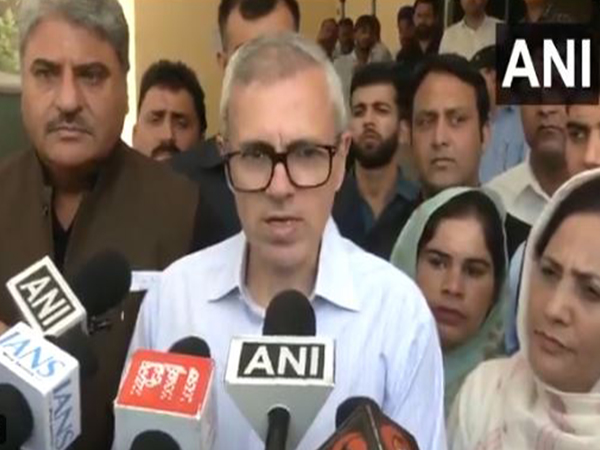Tibet ranked world's least free country in Freedom House index
Apr 10, 2023

Lhasa [Tibet], April 10 : Global watchdog Freedom House has released its Freedom in the World Index for 2023 which ranks Tibet as the world's least free country, Tibet Press reported.
Freedom House, a global watchdog of human freedoms around the world released its report on March 9 titled "Freedom in the World 2023 Report. In the report, Freedom House ranked Tibet as the "World's least-free country" along with South Sudan and Syria, as per the news report.
The report has been successively released for the third year after Freedom House reports in 2021 and 2022 ranked Tibet at the bottom of a community of nations. Freedom House in its report observed that both Chinese and Tibetans living in Tibet lacked basic rights. However, the Chinese authorities are rigorous in suppressing any signs of dissent among Tibetans.
Meanwhile, the UN Committee on Economic, Social and Cultural Rights in its Third Periodic Review report on March 6 noted that numerous issues related to the human rights of the Tibetan people need serious and urgent attention from the international community.
Every step taken by the CPC to Sinicize Tibet is being monitored closely by the rest of the world. However, what matters is the degree to which action is taken to stem the onslaught against Tibetan culture and identity, according to the news report.
The CCP's attempts to sinicize Tibetans have taken one step ahead with the inauguration of a `Chinese Nation Community Consciousness Building Research Center' in the Tibetan Autonomous Region (TAR) to promote "national consciousness" Tibet Press reported citing Tibet Rights Collective (TRC).
Citing state media, the report said that the centre will carry out research on how to promote "community consciousness" among Tibetans and focus on promoting the Chinese government's policies in the region. As per the news report, Tibetan Autonomous Region aims to promote national consciousness, citizen consciousness and rule of law consciousness, mainly to Tibetan religious figures to have control over their thoughts and beliefs.
The campaign began in May 2022 as the Chinese Communist Party (CCP) raised concerns that Tibetan religious figures could be supporting the non-violent resistance movement and encouraging resistance to Chinese rule.
Tibetan religious figures have been subjected to re-education programmes before. However, the campaign which has been launched in 2022 is even more extreme. Monks and nuns are being asked to renounce and condemn traditional Tibetan Buddhist practices, including Tsethar, Tibet Press reported.
The "Three Consciousness Campaign" is the latest in a series of steps taken by the Chinese Communist Party to control the Tibetan population, according to the news report. The Chinese government has been accused of human rights abuses in the region, including torture, forced labour, and religious persecution. The international community has condemned the campaign, with human rights groups and the government urging China to respect the rights of Tibetans.
In its third periodic review of China on March 6, the United Nations Committee on Economic, Social and Cultural Rights "Concluding Observations' said that the report underscores numerous issues regarding the human rights of the Tibetans under the Chinese government which require serious and urgent attention of the international community, as per the news report.
As per the news report, the issues include a "serious onslaught on Tibetan culture and religion", forced relocation of nomad communities, poor treatment, and exploitation of Tibetan culture, as well as forced assimilation of Tibetan children through CPC-run boarding schools, as per the Tibet Press report.
The UN Committee highlighted China's ongoing campaign of putting an end to the traditional lifestyle of Tibetan nomads who regularly migrate with their yaks, sheep, and cows with changing seasons.
As per the news report, Chinese authorities have been forcing Tibetan nomads to sell their animals and reside in designated, small, and newly developed crowded settlements where a strong Chinese surveillance system can keep them under close watch. The UN Committee report has called for an investigation into the current situation of Tibetans.




















